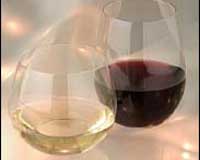 |
The Hague (AFP) June 23, 2009 Sixth generation Dutch fisherman Louwe de Boer is part of a small group of pioneers abandoning traditional, wasteful methods and embracing innovation as a means of protecting their livelihoods. "It is the only way to survive", says the 42-year-old entrepreneur. He spent two million euros (about 2.8 million dollars) three years ago on new nets that slashed his bycatch -- animals caught unintentionally and discarded -- "to just a few percent". Bycatch comprises more than half the yield of traditional trawler fishing, while De Boer's new, twin rig nets are also more gentle on the ecologically sensitive North Sea bed. "It is better to innovate before being forced onto your knees by the consumer," De Boer told AFP on board the Enterprise, his 750-tonne, 45-metre (148-feet) plaice fishing trawler, in the harbour of Scheveningen in The Hague. Ekofish, a company owned by De Boer and his five brothers, has just obtained official credentials from the Marine Stewardship Council (MSC) to certify that its fish are caught in a sustainable way -- the first such award to plaice fishers in the Netherlands. Ekofish's five trawlers catch about 2,800 tonnes of plaice in the North Sea every year -- about five percent of the total European quota for this species. De Boer said his new fishing methods enabled him to offer a better quality product, adding that demand for fish with a sustainable tag was sky-rocketing among consumers with an increasingly environmentally friendly palate. He sells to wholesalers in Austria, France, Germany, Sweden and Switzerland. "Our fish is sold even before it leaves the sea," he said. Not only have De Boer's innovations earned him an environmentally friendly tag and expanded his consumer base, they also resulted in massive savings. "Fuel consumption has dropped by 70 percent," said De Boer of his new nets whose larger grid reduces drag. Also, it simply makes sense to protect the resource from which you hope to continue making a living. As the new, bigger-grid nets leave smaller fish to develop in the sea, "they have a chance to grow to a decent size, and then we can sell them for a good price" said De Boer, who has been a fisherman for 22 years. "The idea is not only ecological, but economical." The environmental advocacy body the Wold Wide Fund for Nature is pushing for this type of "selective" fishing gear to become compulsory for European fisheries. WWF says traditional "bottom trawling" created more than 80 percent of discards in the world's seas, at a rate of millions of fish per year. In a recent report, it also warned about plummeting stock numbers in the North Sea, saying cod, haddock and plaice numbers had fallen by as much as 90 percent since 1990. The European Union had put aside 48.6 million euros (67.4 million dollars) for the sustainable renewal of the Dutch fisheries sector for the period 2007 to 2013, which together with the national government contribution comes to about 120 million euros. Agriculture Minister Gerda Verburg of the Netherlands, one of Europe's few net exporters of fish, recently predicted that only fishermen who can offer a product with a sustainable tag will remain viable in the future. "Innovation and sustainability is an important combination," she told AFP. "There will probably be fewer fishermen. Those who remain will use more energy efficient engines, because the old diesel motors slurp expensive fuel. Those who turn to sustainable nets that differentiate between fish they want to catch and that which they don't: that is the future." "You should not be afraid of change," added De Boer, whose company with some 40 employees predicts a turnover of ten to 12 million euros for 2009. "You must not be too conservative." Share This Article With Planet Earth
Related Links Farming Today - Suppliers and Technology
 China wine-lovers go for French reds
China wine-lovers go for French redsBordeaux, France (AFP) June 23, 2009 Much to the glee of French winemakers, China confirmed its passion for red wine within the first 24 hours of the opening of the world's largest wine exhibition here, Vinexpo. Barely had the first visitors hit the stands when Hong Kong luxury goods company A&A International announced its acquisition of an historic wine estate near Bordeaux, Chateau Richelieu, a 17-hectare property surrounded ... read more |
|
| The content herein, unless otherwise known to be public domain, are Copyright 1995-2009 - SpaceDaily. AFP and UPI Wire Stories are copyright Agence France-Presse and United Press International. ESA Portal Reports are copyright European Space Agency. All NASA sourced material is public domain. Additional copyrights may apply in whole or part to other bona fide parties. Advertising does not imply endorsement,agreement or approval of any opinions, statements or information provided by SpaceDaily on any Web page published or hosted by SpaceDaily. Privacy Statement |